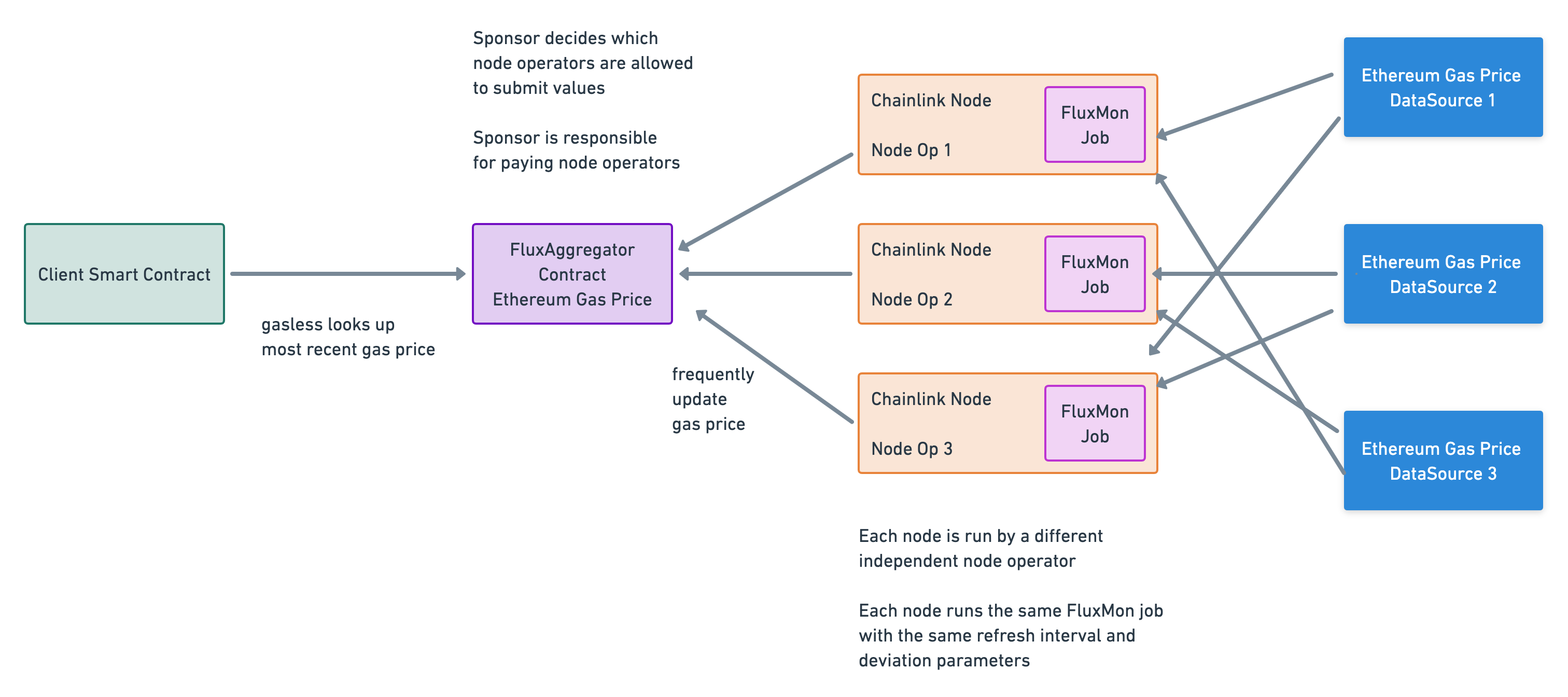Chainlink Pricefeeds Explained
Jul 12, 2022 - #chainlink#oracles#smart-contracts
Aggregator data feeds are a powerful mechanism enabling Chainlink node operators to bring off-chain real-world data on-chain such that the use of that data is gas-free to the consuming client smart contract.
Client smart contracts can simply look up the latest update from the data feed without paying any gas for the privilege. The Chainlink nodes involved in the provisioning of the data feed form a decentralised oracle network (or DON) typically polling off-chain data sources for updates and update the on-chain data based on a set of “refresh” parameters.
On-chain updates can occur based on set periods such as “every hour” or when the off-chain data begins to deviate by a certain percentage from the previous value.
Lets use the Ethereum Gas Price data feed as an example, imagining that the current gas price is 50 Gwei. If our data feed was configured with a deviation parameter of 1% then a 0.25 Gwei drop would not cause an update. Data feed update would be triggered if gas price dropped by more than 0.5 Gwei.
The frequency of data feed updates is a function of volatility of the data being monitored and the setting of deviation parameter. Smaller deviation percentages will trigger more frequent updates.

Chainlink node operators such as ourselves incur the gas costs when writing updates back to the blockchain. Node operators in turn are recompensed in LINK tokens by the “sponsor” of the data feed.
The sponsor controls the FluxAggregator contract which manages the data feed, publishes the data, controls which node operators are participants and ensures they are paid for their efforts.
Sponsors regularly need to top up the amount of LINK vested in the FluxAggregator contract so that node operators can continue to provide data updates.
The FluxAggregator contract is developed by Chainlink and made available to node operators such as ourselves to work in tandem with the Chainlink node software. We have developed command-line tooling to simplify the deployment of FluxAggregator contracts and its continued upkeep.
Advantages
- gas-less access to continuously updated data feeds
- suits generalised data that is useful to a large audience, e.g. price of Gold
Disadvantages
- ported data could be slightly inaccurate if within deviation threshold
- only supports single int256 data type
We can deploy aggregator data feed contracts to all our EVM testnets and mainnets on short notice to get you started quickly. Once up and running we can transfer ownership to you for the continued running of the data feed.